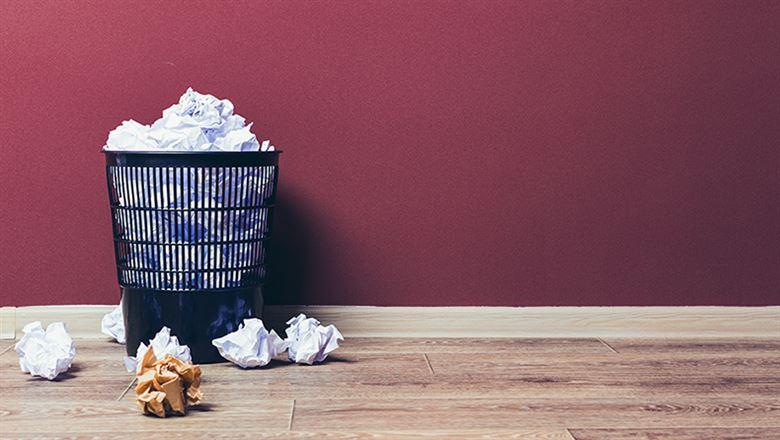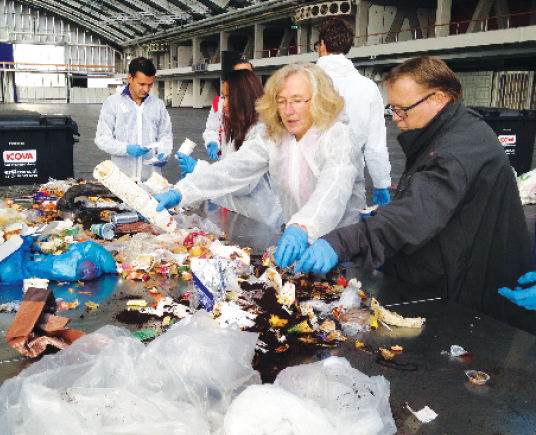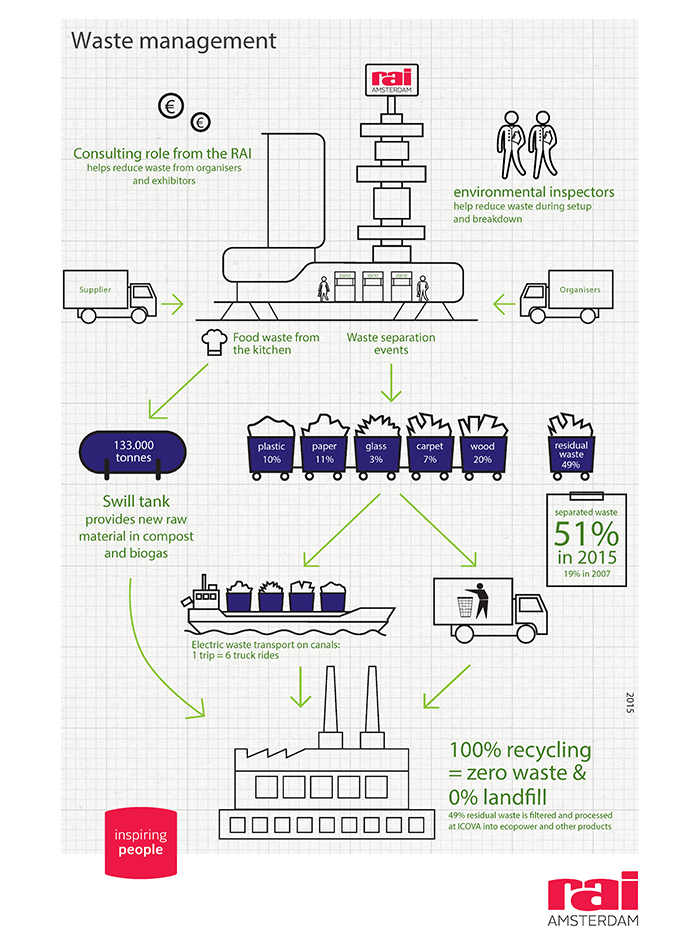Alex Beall
Alex Beall is a freelance writer based in California.
 Associations Now
Associations Now
Staff at RAI Amsterdam got their hands dirty learning how they can help their office and clients reduce waste.
To help staff better understand how to meet its zero-waste goals, meetings and conventions group RAI Amsterdam had them get their hands dirty.
At the 2016 RAI Zero Waste Lab, staff suited up and sorted through piles of mixed waste from the office, partner restaurants, and client events to find out just how much of the trash could actually be recycled.
“We stood there and separated all these bags and really put our hands into a garbage bag. You normally don’t do that, and that was a real eye-opener for everybody,” RAI Production Manager Josieke Moens says. “And then they learned a lot about the value of waste. I think that works better than just putting some text on the internet. People read it, but they don’t feel it, don’t see it.”

During the thorough sorting process, which even included separating tea bags from their paper tags, experts from RAI’s waste management company discussed waste streams, value, and processing costs. At the end of the lab, only 9 percent of the waste could not be recycled.
RAI had implemented zero-waste goals for both the office and its clients several years earlier, but the staff remained largely unaware of the goals and how to meet them.
“The whole story about waste is, every year, a better story, so we put a lot of effort in finding new solutions” for recycling, Moens says. “But we also learned that you have to [raise] the awareness with your own employees. You should put effort in it to keep that alive as well.”
RAI plans to hold another waste lab, possibly including clients and suppliers. It has also expanded its corporate responsibility goals for the next five years to increase the organization’s role in recycling and reusing waste by introducing a compost machine and processes for repurposing products like cardboard and coffee cups.
“Waste has a lot of value, so if we can return that value into something which we can really reuse for ourselves, then we think it’s even more sustainable than just saying, ‘You have 100 percent recycling,’” Moens says.
[This article was originally published in the Associations Now print edition, titled "Trash Talk."]
RAI Waste Management Infographic
Source: RAI Amsterdam, Zero Waste
